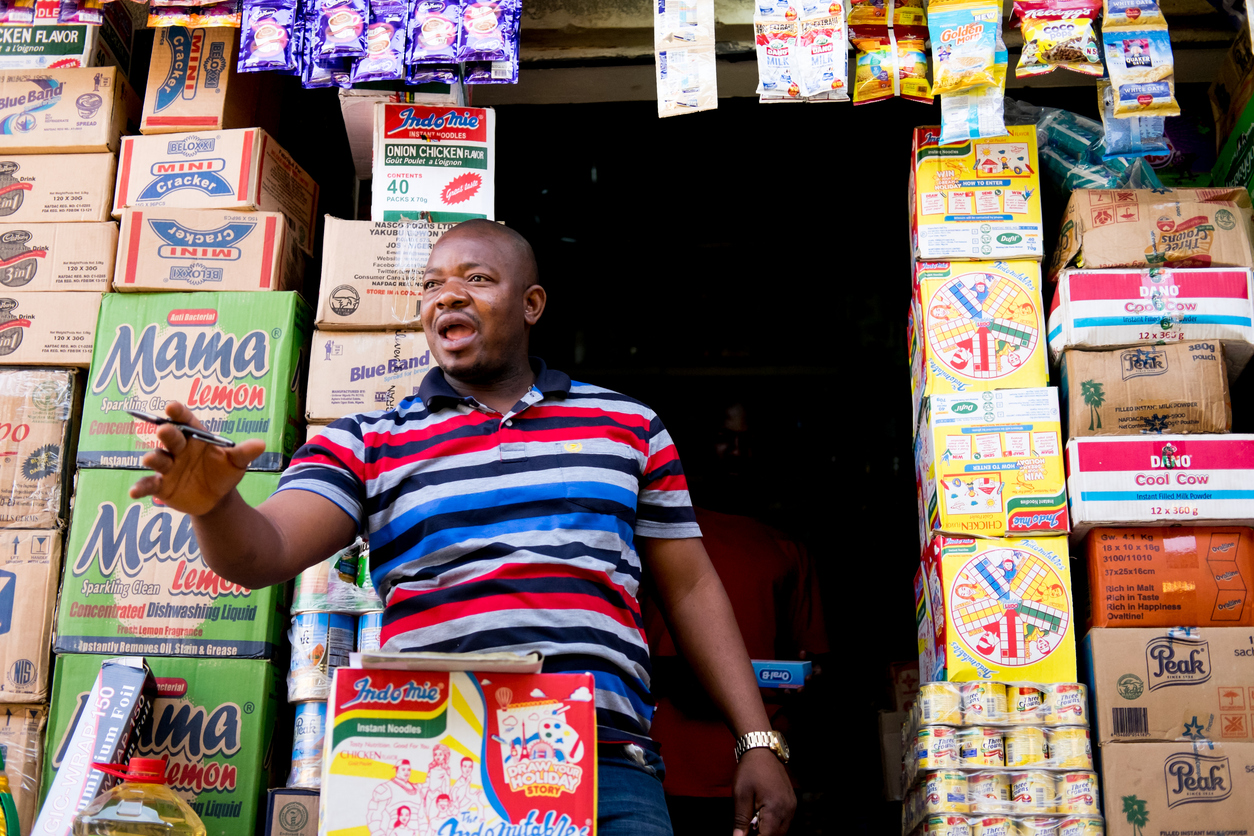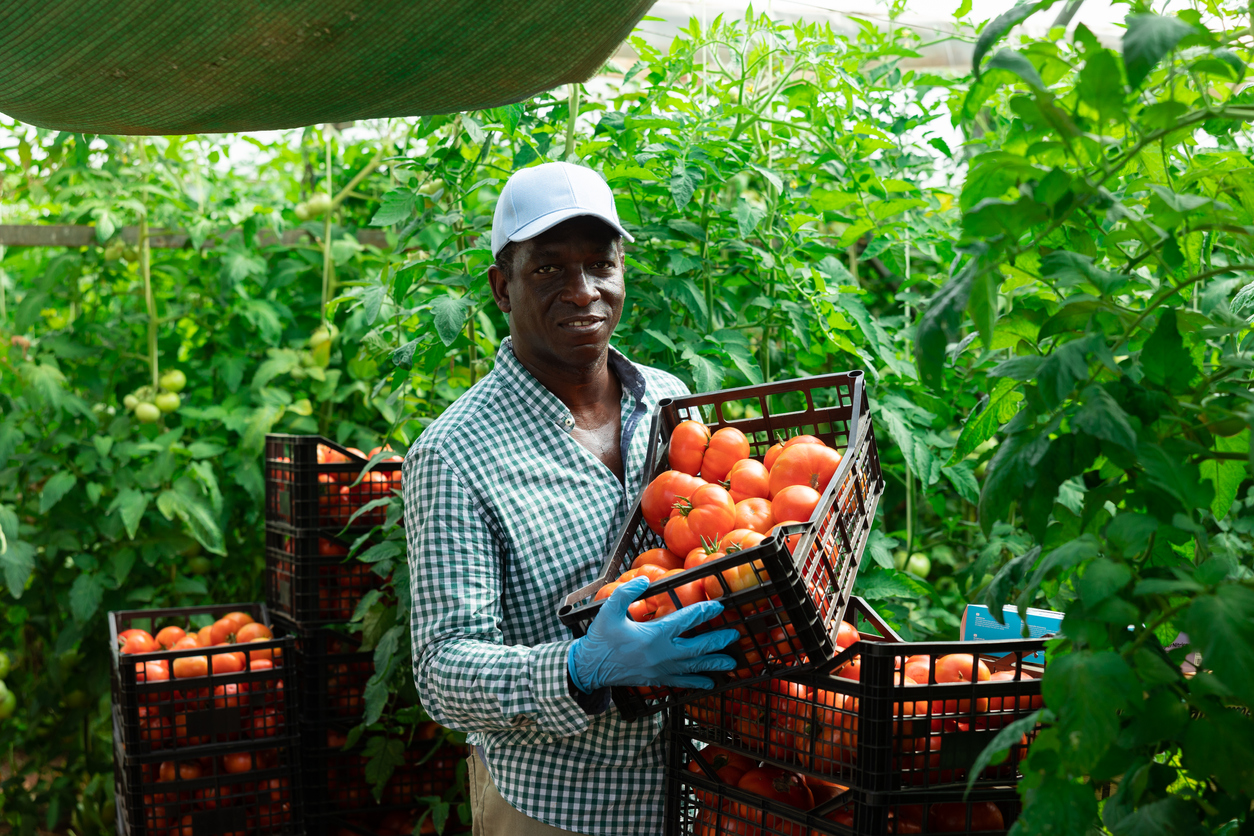Exploring the Vibrant Culture of Kano Market in Kano City, Nigeria
Exploring the Vibrant Culture of Kano Market in Kano City, Nigeria
Step into the bustling and vibrant world of Kano Market in Kano City, Nigeria – a cultural hub where history meets commerce. Join us as we delve into the sights, sounds, and traditions that make this market a must-see destination for anyone seeking to experience the rich tapestry of Nigerian culture. From colorful textiles to aromatic spices, you’ll find it all within the maze-like corridors of Kano Market. So grab your passport and let’s embark on a journey through one of Africa’s most iconic markets!
Introduction to Kano City and its Markets
Kano City, also known as “the Centre of Commerce,” is the capital city of Kano State in Nigeria. It is a bustling metropolis located in the northern part of the country and is home to over 4 million people. The city has a rich history dating back to the 11th century when it was founded by King Bagauda, making it one of the oldest cities in West Africa.
One of the main attractions of Kano City is its vibrant markets, which are an integral part of its culture and economy. These markets have been around for centuries and have played a significant role in shaping the city’s identity. In fact, Kano City has been recognized as one of Nigeria’s major commercial hubs due to its thriving trade activities.
The markets in Kano City offer visitors a unique shopping experience that can’t be found anywhere else. They are filled with a diverse array of goods, from traditional crafts and textiles to modern electronics and household items. Some notable markets include Kantin Kwari Market, Sabon Gari Market, Kurmi Market, and Singer Market.
Kantin Kwari Market is considered the largest textile market in West Africa, with over 20,000 shops selling colorful fabrics such as Ankara prints and traditional Hausa robes called “Babban Riga.” This market attracts locals and tourists alike who come to purchase fabrics for special occasions or everyday wear.
Sabon Gari Market is another popular market known for its variety of goods catering to different ethnic groups living in Kano City. Here you can find anything from food items like spices and grains to clothing, shoes, and accessories at affordable prices.
Kurmi Market specializes in leather products such as bags, belts, and shoes made from locally sourced materials like goat skin and camel hide. This market also offers a range of handcrafted jewelry made by skilled artisans using gold or silver filigree techniques.
Singer Market is the go-to place for electronics and household items. It has a reputation for selling high-quality products at reasonable prices, making it a favorite among locals and visitors looking for bargains.
Visiting these markets not only offers a vibrant shopping experience but also provides an opportunity to immerse oneself in the local culture. The bustling energy, colors, and sounds of these markets are a testament to the vibrancy and diversity of Kano City.
Kano City’s markets are an essential part of its cultural heritage and offer visitors an authentic glimpse into the city’s history and people. So if you’re planning a trip to Nigeria, don’t miss out on exploring the vibrant markets of Kano City.
History and Significance of Kano Market
Kano Market, also known as Kurmi Market, is the largest and oldest market in Northern Nigeria. It is located in the heart of Kano City, the capital of Kano State in Nigeria. The market has a long history dating back to the 15th century and holds great significance for both locals and tourists.
The history of Kano Market can be traced back to its establishment by King Yaji Dan Tsamiya in the 15th century. The market was originally located outside the city walls but was later moved inside when Kano became a major trading center in West Africa. Over time, it grew into a bustling hub for trade and commerce, attracting merchants from different parts of Africa and beyond.
One of the most significant events that shaped the history of Kano Market was its inclusion on major trans-Saharan trade routes during the height of the Trans-Saharan Trade in the 16th century. This brought about an influx of traders from North Africa, Europe, and Asia who came to exchange goods such as salt, gold, textiles, spices, and slaves. This period saw Kano Market become one of the largest markets in Africa.
In addition to being a hub for trade and commerce, Kano Market also served as a cultural melting pot where people from different regions came together to exchange ideas and cultures. This led to a diverse mix of languages, traditions, religions, and customs within the market’s environment.
Today, Kano Market continues to play an important role in both local and international trade. It is divided into distinct sections based on commodities such as foodstuffs (grains), livestock (cattle), handicrafts (leatherwork), traditional medicine (herbs), clothing (fabrics), household items (utensils), among others. The sections are often named after their dominant commodity or tribe associated with it.
Apart from its economic significance, Kano Market also holds great cultural value for the people of Kano. It is a symbol of their heritage and a source of pride for the city. The market’s architecture, with its traditional Hausa-style buildings and narrow winding alleys, has remained largely unchanged over the centuries, giving visitors a glimpse into Kano’s rich history.
Kano Market is not just a place to buy and sell goods; it is an important part of the cultural fabric of Kano City. Its long history and cultural significance make it a must-visit destination for anyone looking to explore the vibrant culture of Northern Nigeria.
Layout and Organization of Kano Market
The Kano Market, also known as Kurmi market, is the largest and most popular market in Kano City, Nigeria. Spanning over 40 hectares and housing more than 10,000 shops, it is a bustling hub of economic activity and cultural exchange. As one of the oldest markets in West Africa, it holds a deep historical significance for the people of Kano and has been an integral part of their daily lives for centuries.
One of the most striking features of Kano Market is its unique layout and organization. Unlike modern shopping malls or organized markets, this traditional market has a maze-like structure with narrow alleyways that lead to different sections. This labyrinthine layout may seem chaotic at first glance but it actually serves a purpose – to encourage exploration and discovery.
As you enter the market through one of its many entrances, you will find yourself surrounded by rows upon rows of shops selling everything from handcrafted items to household goods. The main pathway is known as “Kasuwar Kurmi” which roughly translates to “the heart of the market”. It runs through the center of the market and connects all the different sections together.
To your left, you will find an array of colorful fabrics hanging from shop ceilings – a sight that is synonymous with Nigerian markets. This section specializes in traditional African attire such as dashikis, boubous, kaftans, and headwraps made from locally sourced fabrics like ankara and kente. On your right side are stalls selling spices, herbs, grains, fruits and vegetables – a sensory overload with aromatic scents wafting through the air.
As you continue walking further into the market, you will come across stalls selling traditional medicines used by local healers called “Mallams”. These remedies are believed to have healing properties for various ailments ranging from headaches to stomach problems. Moving on from there are sections dedicated to artisanal crafts including pottery making where you can watch skilled craftsmen at work.
One of the most fascinating sections of Kano Market is the livestock market where animals like goats, cows, and chickens are sold. This section is a lively scene with farmers bargaining and haggling over prices while animals bleat and moo in the background.
The layout of Kano Market showcases a vibrant mix of culture, tradition and commerce. It may be chaotic to navigate but it adds to the charm and authenticity of this bustling marketplace. Exploring its nooks and crannies is an adventure in itself and one that should not be missed when visiting Kano City.
Products and Goods Available at Kano Market
The Kano Market, located in the bustling city of Kano in Northern Nigeria, is a hub for trade and commerce. It has been a central point for economic activities and cultural exchange for centuries, making it an essential part of the vibrant culture of the city.
One of the main attractions of Kano Market is its wide range of products and goods available. As you step into the market, you will be greeted with an array of colors, scents, and sounds as vendors call out to potential customers. The market is divided into different sections that specialize in various goods such as grains, spices, textiles, jewelry, arts and crafts, household items, and more.
If you are looking to stock up your pantry or simply want to experience the local cuisine, head over to the grain section. Here you will find a variety of grains like millet, cornmeal (tuwo), sorghum (dawa), rice (saki), wheat (takai) and more. These grains are staples in traditional Nigerian dishes such as tuwon shinkafa (rice pudding) or fura da nono (millet porridge).
For those interested in spices and herbs used in Nigerian cuisine or traditional medicine practices,you can explore the spice section where vendors sell everything from turmeric and ginger to hibiscus petals and African pepper.
The textile section offers a colorful display of fabrics ranging from locally woven cotton to imported silk materials. You can find garments like kaftans, wrappers (lappa), hijabs,and more adorned with intricate designs reflecting Nigerian culture. This is also where you can purchase traditional Hausa hats known as fula godo or abaya made from local leather.
Visitors interested in souvenirs or home decor must visit the arts and crafts section. Here you will find handcrafted items like pottery,jewelry made from beads or silver,tie-dye fabrics,baskets made from palm leaves, and more. The craftsmanship of these items is a testament to the skill and creativity of the local artisans.
Kano Market is also known for its leather goods, especially its famous leather works like bags, shoes, belts made from locally sourced hides. These products are not only durable but also showcase traditional designs that have been passed down through generations.
No trip to Kano Market is complete without visiting the kola nut section. Kola nuts hold significant cultural and religious significance in Nigeria, making them an essential item in ceremonies and rituals. In this section, you can find fresh kola nuts as well as various products made from them such as drinks and cosmetics.
In conclusion,the diverse range of products and goods available at Kano Market reflects the rich culture and traditions of the city. Whether you are looking for everyday essentials or unique souvenirs,you will not be disappointed by what this vibrant market has to offer.
Traditional Attire and Handicrafts at Kano Market
Kano Market is not only a hub for fresh produce and everyday goods, but it is also a treasure trove of traditional attire and handicrafts. As you wander through the bustling market, you will come across numerous stalls selling vibrant and intricately designed clothing and hand-crafted items unique to the region.
One of the most popular items at Kano Market is traditional attire. The market offers a wide range of fabrics, including colorful cotton prints, luxurious silks, delicate lace, and richly patterned brocades. These fabrics are used to create stunning outfits such as boubous (long loose-fitting robes), kaftans, headscarves, and more. The designs are often inspired by traditional Nigerian patterns and colors, making them truly one-of-a-kind pieces.
In addition to ready-made garments, you can also find tailors in Kano Market who can create custom-made outfits according to your preferences. This allows visitors to not only purchase beautiful traditional attire but also experience the process of having it made specifically for them.
Another highlight of Kano Market is its extensive collection of handicrafts. Skilled artisans from all over Nigeria come to sell their handmade creations here. From intricately woven baskets to beautifully carved wooden sculptures and pottery – there is something for every taste.
One popular item among tourists is the locally made leather goods. You will find an array of leather bags, shoes, belts, wallets, and more in various styles and designs at Kano Market. These products are not only aesthetically pleasing but also durable due to the high-quality materials used.
For those interested in adding some unique home decor pieces to their collection or looking for souvenirs to take back home with them – the market has a variety of options available. Handmade rugs in vibrant colors and patterns add warmth and character to any room while hand-painted ceramics make great conversation starters.
Visitors can also admire and purchase traditional Nigerian artwork at Kano Market. The market is home to numerous artists who sell their paintings, sculptures, and other forms of art here. From contemporary pieces to more traditional ones – there is something for every art lover.
The traditional attire and handicrafts found at Kano Market are not only beautiful but also reflect the rich culture and heritage of Nigeria. A visit to this vibrant market will surely leave you with a deep appreciation for the country’s artistic traditions.
Food and Cuisine at Kano Market
The Kano Market, located in the bustling city of Kano in Nigeria, is not only known for its lively atmosphere and vibrant culture but also for its diverse and delicious food options. As one of the largest open-air markets in West Africa, it offers a plethora of local delicacies that will tantalize your taste buds and give you a glimpse into the rich culinary traditions of this region.
One cannot talk about food at Kano Market without mentioning suya – a popular grilled meat dish that originated from Northern Nigeria. The suya stands can be found all over the market, with vendors expertly grilling skewers of beef, chicken or liver over hot coals. The meat is marinated in a blend of spices including groundnuts, ginger, garlic, and cayenne pepper before being cooked to perfection. Suya is typically served with sliced onions and tomatoes on the side, providing a burst of freshness to balance out the spicy flavors.
Another must-try dish at Kano Market is maafe – a hearty peanut stew that combines meat (usually chicken or beef) with an array of vegetables such as carrots, eggplant, and okra. This flavorful dish has its roots in Mali but has become widely popular across West Africa. It is best enjoyed with fufu – a staple starchy side made from cassava flour or yams.
For those looking for something sweet to satisfy their cravings, there are plenty of options available at Kano Market as well. One particular treat that stands out is kunun gyada – a creamy drink made from groundnuts and rice flour. It has a thick consistency similar to milkshake but with hints of nuttiness that make it unique.
Apart from these traditional dishes, visitors can also find international cuisines such as Lebanese shawarma or Indian samosas being sold at various stalls throughout the market. These offerings reflect the multicultural influence on Nigerian cuisine over the years.
In addition to the food stalls, there are also several restaurants and cafes within the market where visitors can sit down and enjoy a meal in a more relaxed setting. These establishments offer a variety of dishes ranging from local favorites to international cuisine, providing something for everyone.
The food scene at Kano Market is an essential part of its vibrant culture. It not only satisfies hunger but also serves as a means for people to come together, share stories and bond over delicious meals. So next time you visit Kano Market, don’t forget to indulge in its diverse and mouth-watering food options – your taste buds will thank you!
Cultural Experiences at Kano Market: Music, Dance, and Festivals
Kano Market is not just a place to shop for goods, but also a hub for cultural experiences in the city of Kano, Nigeria. The market is known for its vibrant and lively atmosphere, with music, dance, and festivals being an integral part of the daily life at the market.
One of the most notable cultural experiences at Kano Market is the traditional music played by local musicians. As you walk through the colorful aisles of the market, you will be greeted by the sound of drums and flutes playing melodious tunes. These musicians are often seen performing in groups or as solo acts, captivating visitors with their skillful performances.
The music at Kano Market is not just limited to traditional instruments; you can also hear contemporary Nigerian music playing from vendors’ stalls. This fusion of old and new creates a unique atmosphere that reflects the diverse culture of Nigeria.
In addition to music, dance is also a prominent aspect of cultural experiences at Kano Market. You can witness locals dancing gracefully to traditional beats as they go about their daily routines. The market’s open layout provides ample space for impromptu dance performances that add to the lively ambiance.
But perhaps what truly sets Kano Market apart from other markets in Nigeria are its colorful festivals. Throughout the year, various festivals are celebrated here with great enthusiasm and vigor. One such festival is Durbar Festival, which takes place during Eid al-Fitr and Eid al-Adha celebrations. During this festival, locals dress up in their traditional attire and participate in parades while riding on horses or camels adorned with vibrant decorations.
Another popular festival celebrated at Kano Market is Argungu Fishing Festival held every March. This four-day event attracts thousands of people from across Nigeria who come together to witness fishermen competing against each other to catch fish using bare hands and traditional tools.
Apart from these major festivals, there are many smaller festivals celebrated within different communities at Kano Market. These festivals offer a glimpse into the rich cultural heritage of various tribes and ethnic groups that call Kano their home.
Visiting Kano Market is not just about shopping but also immersing oneself in the vibrant culture of Nigeria. The music, dance, and festivals at the market provide visitors with a unique opportunity to experience the rich traditions and customs of this beautiful country. So next time you visit Kano City, make sure to stop by Kano Market for an unforgettable cultural experience.
Tips for Visiting Kano Market
Tips for Visiting Kano Market:
1. Plan your visit: Kano Market is a bustling and busy place, therefore it is important to plan your visit beforehand. Decide on the day and time you want to go, keeping in mind that weekends tend to be more crowded than weekdays. Also, make sure to check the weather forecast as the market is mostly outdoors.
2. Dress appropriately: As Kano Market is located in a predominantly Muslim city, it is important to dress modestly out of respect for the local culture. This means covering your shoulders and knees and avoiding revealing or tight-fitting clothing.
3. Start early: The market opens around 8 am, but if you want to avoid the crowds and get the best deals, it’s best to start your visit early in the morning. This will also give you plenty of time to explore without feeling rushed.
4. Bargain wisely: Haggling for prices is a common practice at Kano Market, so don’t be afraid to negotiate with vendors. However, remember to do so respectfully and keep in mind that these sellers rely on their sales for their livelihoods.
5. Bring cash: While some vendors may accept credit cards or mobile payments, it’s always safer to bring cash with you while shopping at Kano Market. There are ATMs nearby if you need more money.
6 . Explore all sections of the market: The market is divided into different sections such as food, textiles, crafts, etc., so make sure to explore each one thoroughly for a complete experience.
7 . Try local delicacies: One of the highlights of visiting Kano Market is trying out delicious local dishes from street food vendors or small cafes within the market area. Don’t miss out on popular dishes like suya (grilled meat), masa (rice cakes) or miyan kuka (a savory soup).
8 . Respect local customs: As with any new place, it’s important to be aware and respectful of local customs. For example, it is considered rude to take photos without permission from the vendors, so always ask before snapping a picture.
9 . Keep an eye on your belongings: With the crowded and busy atmosphere of Kano Market, it’s important to keep a close eye on your belongings at all times. Avoid carrying large amounts of cash or wearing expensive jewelry that could attract pickpockets.
10 . Take breaks: The market can be overwhelming with its sights, sounds, and smells. Make sure to take breaks in between exploring to rest and recharge. You can also stop by one of the many cafes in the market for a refreshing drink or snack.
By following these tips, you’ll be able to make the most out of your visit to Kano Market and immerse yourself in the vibrant culture of this bustling marketplace. Happy exploring!
Personal Experience/Story from a Visit to Kano
Personal Experience/Story from a Visit to Kano:
Visiting the Kano Market in Kano City, Nigeria was an experience that left a lasting impression on me. As soon as I stepped into the market, I was immediately hit with a wave of vibrant colors and bustling energy. The market is divided into different sections, each dedicated to selling specific items such as spices, fabrics, traditional crafts, and fresh produce.
I first made my way through the spice section and was greeted by the strong aroma of various herbs and spices. The array of colors from different spices like turmeric, cinnamon, and cumin was mesmerizing. I couldn’t resist buying some to take back home with me.
Next up was the fabric section which is known for its beautiful hand-woven fabrics called “Hausa kara”. The intricate designs and bold patterns were truly captivating. As I walked through the narrow aisles of shops, I couldn’t help but admire the craftsmanship that goes into creating these fabrics.
One of the highlights of my visit to Kano Market was witnessing local artisans at work in their workshops. I had read about how skilled they are in creating traditional crafts like wood carvings and pottery, but seeing it firsthand left me in awe. It’s amazing to see how they use simple tools to create intricate pieces of art.
As I continued exploring the market, I stumbled upon a section selling fresh produce including fruits and vegetables. The vendors were friendly and eager to share information about their products. I tried some locally grown mangoes which were hands down one of the best mangoes I have ever tasted.
One aspect that stood out during my visit was how welcoming everyone in the market was despite being busy with their daily routines. Many shop owners invited me inside their shops for tea or coffee while we chatted about life in Kano City.
As much as I enjoyed shopping at Kano Market, what truly made this experience special was the opportunity to interact with the locals and learn about their culture. It was heartwarming to see how proud they were of their traditions and how eager they were to share it with visitors.
My visit to Kano Market was a truly immersive experience that exposed me to the vibrant culture and warm hospitality of Kano City. I left with a newfound appreciation for Nigerian traditions and a bag full of unique souvenirs.







Comments are closed.